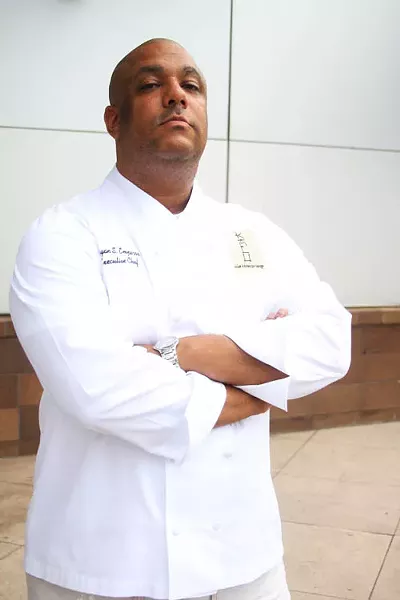Bryan S. Emperor is not a fusion chef, despite what you may think. Sure, he's an American who specializes in Asian cuisine, but he has received extensive training from some of the top masters of Asian cuisine in the world, won an array of honorable awards in the industry and opened several restaurants across the U.S. and Asia. His latest project has been taking on the role of the executive chef and general manager of Kalu Asian Kitchen (named after its primary investor but what Emperor jokingly says means "delicious" in Japanese).
Creative Loafing: To what do you attribute your success as an Asian cuisine chef?
Bryan S. Emperor: I was pretty fortunate because I had a strong basis in the language and the culture, and I was able to prove myself and be accepted as a peer. Most importantly, having 20 years of experience living and working and making partners in Asia, I can reach out directly and pull ingredients to this restaurant directly from their source. So the taste you're getting is really authentic and can't be reproduced with anything found in America.
I've been pretty lucky. Asian society is very closed in a lot of ways. I don't know if I possess some special charisma or some special luck that allowed me to be accepted and brought under the wing of some of the most famous and proficient masters in Japan. Those people continue to support me to this day so I owe a lot of gratitude to those folks who were able to open a lot of doors for me.
What is your food philosophy?
I have developed this food philosophy that no one else really has in the United States right now, I believe. There are a lot of different nuances, different tastes and textures of Asian food, Japanese food in particular, that's really under-represented in the U.S. Most American people think that Japanese food is primarily sushi and that sushi is mostly rolls, but that couldn't be farther from the truth. What I strive to do is expose my fellow Americans to a food philosophy that doesn't really exist. I want to be able to introduce that fabulous cuisine from Asia and present it in a way that makes Westerners comfortable to try things that they have never had before.
What does it take to master Asian cuisine?
In order to understand the true essence of Asian food, you have to understand it from an Asian perspective, and in order to get that training, you have to go to Asia. There's no way to really learn it in America. It's like I can see the moon from my bedroom window, but I don't know what it's like to stand on it.
